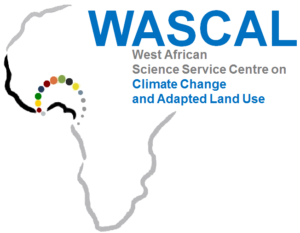WASCAL- International Master’s Program in Energy and Green Hydrogen (IMP-EGH)

Developing and sustaining green hydrogen technology within Southern and Western Africa will largely depend on the availability of the relevant know-how within the local communities. Currently, local engineers, technologists, technicians, researchers, science managers and academics are needed on the ground in sufficient quantity and proficiency. As part of its capacity building activities in Africa, the Federal Ministry of Education and Research (BMBF) founded a graduate school in partnership with the West African Science Service Centre on Climate Change and Adapted Land Use (WASCAL). Next to the existing graduate school programs the BMBF funded a two-year Master Program “International Master Program in Energy and Green Hydrogen (IMP-EGH)”.
The IMP-EGH aims to train students based on international standard and best practices to be able to serve the human capacity need of both the local and international energy markets. Particular focus should be given to developing capacity in the area of green hydrogen technology. This includes all related fields from green hydrogen production and storage as well as the entire value chains in its utilization and application. Specifically, IMP-EGH will:
Forschungszentrum Jülich (FZJ) together with RWTH Aachen University will support this program beginning from its set up, implementation and onwards. Support shall be in the form of teaching and student supervision via online teaching tools and on-sight visits.
The West African students can specialize in six different areas, for example economics, photovoltaics or green hydrogen technology. At the end of the study programme, the students will write their Master’s thesis in Germany. “The programme’s interdisciplinary approach will allow for a better understanding of present-day energy infrastructures in West Africa, their strengths and weaknesses, energy policies, practices in a changing climate context, and the search for sustainable solutions.”
INaB is one of the Institutes in RWTH involved in providing lectures and supervising the students. In particular, INaB provides knowledge, method and tools to assess the sustainability of Green Hydrogen towards sustainable development of West African Countries.
Project partners:
Project duration: 2021 – 2025
Funded by:

Contact:
Ing. Rose Nangah Mankaa
Tel.: +49 241 80 22763
Mail: rose.mankaa@inab.rwth-aachen.de
Univ.-Prof. Dr.-Ing. Marzia Traverso
Tel.: +492418022761
Mail: marzia.traverso@inab.rwth-aachen.de
